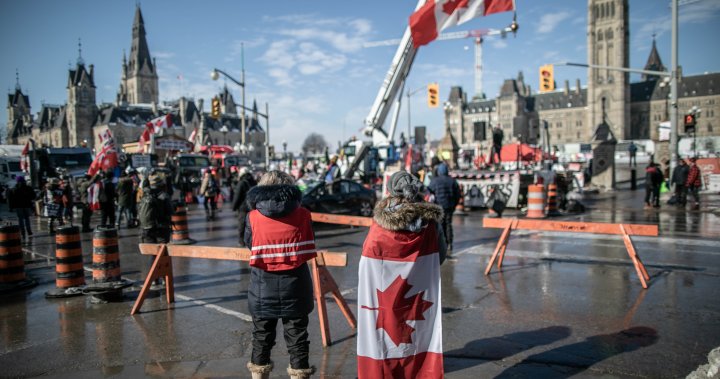
Emergencies Act inquiry: ‘Tension’ between police, oversight board over lack of plan
Global News
During the convoy protests, Deans said the police provided her with very little information about their plan to uproot the demonstrators that had installed themselves in Ottawa.
As the so-called “Freedom Convoy” protesters dug in their heels and blared their horns in downtown Ottawa, there was tension between the police service and its oversight board as calls grew to come up with a plan to remove the demonstrators, according to the former chair of that board.
There’s always a “push and pull” between the police services board and their corresponding police service, according to Ottawa city councillor Diane Deans, who served as the chair of the Ottawa Police Services Board during the protests in February.
“We’re only entitled to this much, and we can’t interfere. There is some tension between boards and the service in this regard,” Deans told the Public Order Emergency Commission on Wednesday.
“I think it’s fair to say that as this occupation of our city continued, the board started pushing harder and harder for more details around that plan and were perhaps a little more emboldened in recognizing that we needed that information.”
The seven-member board is a civilian body tasked with overseeing the Ottawa Police Service. While the board cannot direct police operations, its members can set priorities for police.
But during the convoy protests, Deans said the police provided the board with very little information about their plan to deal with demonstrators that had installed themselves throughout downtown Ottawa.
People protesting COVID-19 public health measures had descended on downtown Ottawa, as well as multiple border crossings across the country, and dug in for weeks. City streets in Ottawa were snarled and businesses were forced to shut their doors as residents were subjected to non-stop honking.
“They did not provide the board with a detailed operational plan. In fact, we never saw a detailed operational plan throughout until close to the very end,” Deans said of the board’s communications with the police service.











